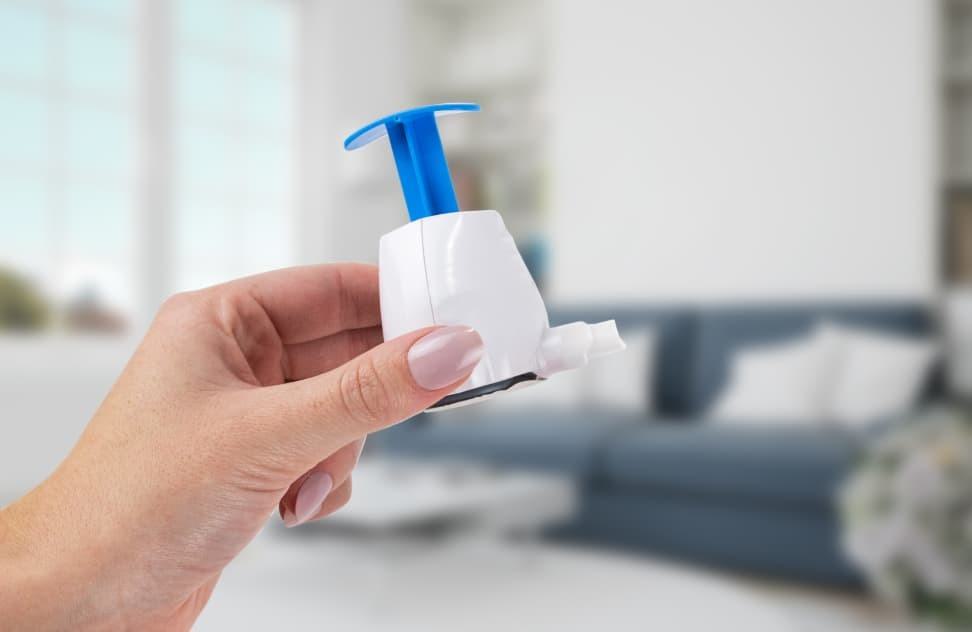Many of us have experienced the discomfort of a blood draw from a vein or finger prick. While blood collection is a routine and essential procedure in healthcare, the anxiety and pain it often causes can limit patients’ access to healthcare solutions.
YourBio Health is pioneering an approach to blood collection that is more convenient and painless. Recently, YourBio announced the appointment of Paul Owen as CEO and CEO-Partner at Flagship. We sat down with Paul to explore the challenges surrounding blood collection, including how the company’s simpler, more patient-friendly device could transform both the patient experience and healthcare delivery at large.

Over the course of your career, what challenges have you seen in blood collection and why do we need a new solution?
I’ve spent 35 years working in the life sciences, spanning devices, diagnostics, and digital health solutions. While blood collection is routine in healthcare, it’s far from simple. An intravenous blood draw from your arm involves a large needle inserted into a vein, while alternatives like finger sticks or heel pricks require a deep puncture into the skin. These methods can be painful, inconvenient, and inaccessible for many people, but have remained essential because alternative sample types lack the diagnostic accuracy and quality of a blood sample. In adult patient populations, around 30% of patients don’t show up for tests their doctors order — either due to the inconvenience of visiting a centralized lab or fear of needles.
In pediatric patient populations, blood collection remains one of the most stressful experiences for patients, full of anxiety and pain. Because lancets require deep skin punctures, patients often cry, flinch, and need to be restrained. And while venipuncture is still common, it can be challenging on small veins, leading to multiple attempts, missed draws, and added stress for families and clinicians.
Beyond the immediate discomfort, the fear of blood collection can have lasting effects. Many children associate doctor visits with pain, leading to avoidance of routine check-ups and necessary tests. In fact, studies show that early traumatic medical experiences can contribute to lifelong needle phobia, making future healthcare interactions even more difficult.
The need for a pain-free, anxiety-free solution is clear. If we can transform blood collection for children, we can improve compliance, streamline clinical workflows, and make doctor visits less stressful for families. That’s why YourBio Health is focused on developing a device that offers a gentler, faster, and more effective approach to blood collection.
What parts of the healthcare industry rely on blood collection, and how is YourBio enhancing a patient’s blood-collection experience?
Blood collection methods have not kept pace with the massive shifts we’ve seen in diagnostics and pharmaceuticals. The benefits of new tests, results, and outcomes are not being fully realized because of the initial blood work hurdle. The challenge extends to advanced pharmaceuticals, such as GLP-1 agonists and other medications that require routine blood monitoring, which can be cumbersome for patients to manage. A huge percentage of people don’t like needles or find the process inconvenient, so they aren’t able to benefit from these advances.
The inconvenience and inaccessibility of blood sampling also impacts clinical trial retention rates and population diversity. Retention rates improve dramatically when participants are offered a home-based device, which accelerates trial timelines and reduces costs. This approach also enables a more diverse trial cohort that is not constrained by geographic location or other limitations.
For pediatric applications, painless blood collection is a game changer. In a study conducted at Massachusetts General Hospital, our TAP device was used to collect blood from about 100 infants. Remarkably, the doctor conducting the study reported that not a single patient cried. If you compare that to a needle or lancet, an estimated 70% of children cry.
We see significant potential for TAP to increase patient compliance while providing healthcare providers with reliable blood samples in pediatrics; clinical trials; skilled nursing and adult care; hospital-at-home settings; and primary, specialty, and urgent care. We are redefining the patient experience, eliminating barriers such as pain, fear, and inconvenience that often deter patients from pursuing necessary testing and monitoring, which enhances not only patient compliance but also drives broader access to healthcare.
What future vision you would like to see for healthcare delivery?
Diagnostic and research-based testing methods have advanced to require much smaller blood volumes, and we anticipate even more tests moving in this direction. Additionally, I foresee health systems becoming increasingly decentralized, with greater emphasis on accessibility and convenience — an evolution we saw beginning during the COVID-19 pandemic. I also expect more advanced therapeutics on the market that meet a variety of patient needs, but many will likely require frequent blood monitoring. At YourBio, we are committed to meeting these changing demands with innovative technology and a forward-thinking team, positioning us to redefine how patients engage with and benefit from healthcare.
